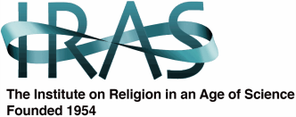Habitability for Your Cosmic Future:
AstroAnthropology Meets AstroEthics
Star Island, NH
June 23–30, 2024
RegistrationRegistration open now! Become an IRAS member and receive a reduced rate
Call for papersClosed: deadline was February 17, 2024.
Star Island offers discountsDiscounts are available based on need. Learn more on the Star Island financial grants section of their registration page.
Fellowships & ScholarshipsIRAS offers a range of Fellowships & Scholarships.
Streaming the Conference Sessions and Chapel TalksUnable to go to the conference? Become an IRAS member and stream the conference sessions and chapel talks for free! Access will be provided at the start of the conference.
Have more questions? |
2024 IRAS Conference StatementAstrobiology, astronomy and planetary science — investigating Earth and local planets as well as planets orbiting other stars — invite us to consider life in cosmic context. This conference will weave together diverse interdisciplinary threads from the natural and social sciences and the humanities to consider the place and purpose of humanity in a context in which Earth might not be our only home and in which we may not be alone. Our plenary speakers (leading scientists, religionists and ethicists) will draw on cutting-edge thinking in astrobiology, including emerging thought on “habitability,” and astro philosophy and theology to consider many questions, including:
Confirmed Plenary Speakers: Dr. Andrew M. Davis, program director for the Center for Process Studies at Claremont School of Theology, author of Exotheology and Cosmic Religion: Extraterrestrial Life in a Process Universe (2023). Dr. Lucas Mix author and manager Equipping Leadership in an Age of Science, and in 2021 NASA/Library of Congress Blumberg Chair in Astrobiology. Shoaib Ahmed Malik is presently serving as a Visiting Researcher at St. Mary’s University, Twickenham (UK). Holding dual doctorates, he has a PhD in Chemical Engineering (University of Nottingham, UK) and a PhD in Theology (University of St Mary’s, Twickenham, UK). His acclaimed work as co-editor Islamic Theology and Extraterrestrial Life: New Frontiers in Science and Religion (Bloomsbury), is the first book-length treatment on Islamic exotheology in English. Ted Peters co-edits the Journal of Science and Theology at the Francisco J. Ayala Center for Theology and the Natural Sciences at the Graduate Theological Union in Berkeley, California. An acclaimed author, he most recently published Astrotheology: Science and Theology Meet Extraterrestrial Life.(Cascade Boos, 2018). Dr. Mark Shelhamer: Mark served as Chief Scientist for the Human Research Program at NASA’s Johnson Space Center for several years, and studies the challenges of sending humans into long-term space flight; he has had quite a bit of contact with astronauts and astronaut data. Dr. Seth Shostak, Senior Astronomer and Director, podcast host for the SETI institute. In this role Seth directs the task of finding evidence of intelligent life in space. He is also committed to getting the public, especially young people, excited about astrobiology and science in general. Jennifer Wiseman is an astrophysicist, author, and frequent public speaker. She studies the process of star and planet formation in our galaxy using radio, optical, and infrared telescopes. She studied physics at MIT, co-discovering comet Wiseman-Skiff in 1987, and continued in astronomy with her doctoral research at Harvard. She has worked with several international observatories and is currently a senior astrophysicist at the NASA Goddard Space Flight Center. Conference Program Chairs: Ted Peters, Jennifer Wiseman, and Maynard Moore |
Copyright by The Institute on Religion in an Age of Science
Proudly powered by Weebly
